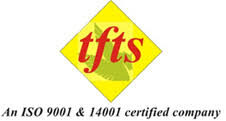
The Great Resignation, spurred by the pandemic, is gradually slowing down. Dissatisfaction, rising living costs, and inflation are driving employees to leave. Retaining and attracting talent, especially welders in construction, is challenging.
In industries like construction, automotive, aviation, and manufacturing, welders are crucial for creating and repairing structures. They use specialized techniques, analyze blueprints, and ensure structural integrity. So, the question here is:
How to identify the appropriate welder for your company?
Trendsetters Facilities and Technical Services, the leading provider of welders in Rudrapur, Pantnagar, Haridwar, SIDCUL, Bawal, and Manesar provides several tips for selecting the right welder.
1. Understand your requirements
Are you initiating a hiring process for a welder? Clearly define your project needs beforehand. Determine if it’s a large-scale construction project or a smaller home improvement task, as welders specialize in different areas.
Specify the materials, welding complexity, and any required certifications. This clarity helps you effectively communicate with potential candidates. Outline your project details and understand how welding fits into the overall job. By knowing exactly what you’re hiring for, you can compare welders based on their skills and experience to find the right fit for the job.
2. Experience is essential
A certified welder is crucial for your business as they undergo extensive training, reducing risks. While certifications are a good indicator, they’re not the sole factor. Prioritize experienced welders with excellent references.
Certification alone may not guarantee skills, and experience without certification raises questions. Ensure the welder’s expertise aligns with your project needs. Verify qualifications and certifications from reputable institutions, requesting proof before hiring. This thorough approach ensures you get a skilled and reliable welder for your specific job.
3. Look for latent talents
Consider diversifying your talent pool when hiring welders by exploring non-traditional candidates. Look beyond typical qualifications and backgrounds to identify individuals with unique skills and perspectives. Non-traditional hires may bring innovative problem-solving abilities and a fresh approach to welding, fostering a dynamic and inclusive workplace.
Hiring creative individuals from diverse backgrounds, even outside welding, can contribute to a team’s ability to understand and execute complex projects, akin to turning a 2-D drawing into a metal fabrication.
4. Salary Matters
Competitive compensation is crucial in securing top-notch welders for your company. Offering salaries on par with industry standards in your area is essential. Additionally, consider attractive benefits such as healthcare coverage, childcare stipends, sign-on bonuses, and flexible schedules.
While opportunities for professional growth are enticing, welders prioritize financial stability. Ensuring a well-rounded compensation package not only attracts but also retains skilled welding talent, fostering a positive and committed workforce.
5. Technological Advantage
Leverage technology to your advantage when hiring welders by strategically combining job board posts with social media outreach. In today’s job market, seekers explore multiple platforms for opportunities. Ensure your job opening reaches a wider audience by posting on all relevant job search platforms. Harness the power of social media to engage with potential candidates, creating a seamless and efficient recruitment process that attracts the right talent for your company’s welding needs.
6. Communication Skills
Effective communication is crucial for successful welding projects. When hiring a welder, evaluate their hard skills, including proficiency in welding techniques, blueprint reading, equipment operation, welding safety, material selection, and quality control.
Additionally, assess essential soft skills like attention to detail, communication, teamwork, problem-solving, adaptability, and work ethic. Ensure candidates have a history of precision and quality in their work, effective communication, collaboration, problem-solving capabilities, and a strong work ethic. This comprehensive assessment ensures the welder has both technical expertise and interpersonal skills for success in the role and team.
Now that you have grasped the key elements for selecting the right welder, success lies in aligning project needs, valuing experience, embracing diverse talents, offering competitive salaries, leveraging technology, and prioritizing effective communication. This holistic approach ensures a skilled, innovative, and committed welding workforce for your projects.

